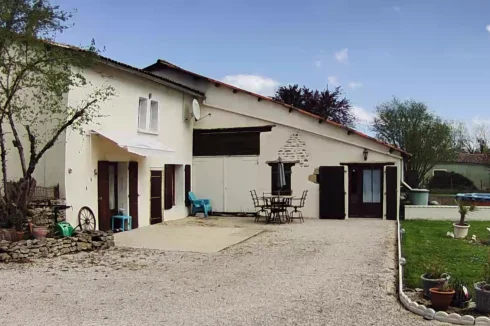France 'Profits' from Health Care to Expats
Tuesday 18 May 2010
France seems to get well paid for the health treatment of expats and tourists, according to a new study.
The country receives more in payments for the treatment of expats and tourists in France than it pays out for its own citizens abroad.
This is despite the fact that the number of French citizens who benefit from health care overseas was higher than the number of foreign beneficiaries of health care in France.
This is the main conclusion of a study of the costs of the health treatment for tourists, retired persons and cross border workers carried out by the international social security agency in France 'CLEISS' (Centre des Liaisons Européennes et Internationales de Sécurite Sociale).
The report should put into perspective some of the wilder allegations made about ‘health tourism’ in France.
How the System Works
Within the European Union individual governments are responsible for the health costs of their citizens when travelling as tourists or living abroad as retired persons or cross border workers.
Outside of the EU there are also bilateral agreements in place between France and many other countries.
Underpinning these agreements is a reciprocal system for refunding the costs of health care, with payments made either on a fixed lump sum basis, or by reimbursement of the actual costs incurred.
Retired expats from the EU in France are covered for their health costs through an ‘E’ form certificate of entitlement granted by their government. Last year the French government received a lump sum per person of €4,162, a figure based on the average costs per person of healthcare in France for all its citizens.
The same approach is applied by other European governments, in line with a formula laid down by the EU. The level of reimbursement for cross-border workers is at a lower rate.
What the Study Said
The study found that, under the terms of these agreements, France received twice as much from abroad as it paid to foreign governments.
In total, France received €648 million, while it paid out €340 million, a net positive balance of €308 million.
This is despite the fact that the number of insured French citizens who received treatment abroad was higher than the number of foreigners who received treatment in France.
Thus 377,979 French citizens received treatment abroad, while 373,230 foreigners received treatment in France.
This means that the average charge for health treatment for each French person abroad was €900, while for foreigners in France it was €1,737.
The authors of the report stated that: ‘The lack of parity between the level of charges and the number of beneficiaries is due to the fact that health costs in France are higher than many other countries, and that France treated a higher proportion of older foreign patients.’
British Expats in France
The British government paid €145 million for its own citizens in France, a quarter of all expenditure for citizens from the European Union.
However, British citizens accounted for only 18% of EU beneficiaries.
The costs for British citizens were proportionally higher as most were resident retired expats, for whom the lump sum payments from the UK were a higher percentage of total payments.
The study did not examine the situation of British expats affiliated to the French health system by virtue of their status as employees or self-employed persons, or those inactive early retirees who have completed 5 years residence in the country.
These groups to not receive free health cover from their government, but pay directly into the French health system.
Broadly speaking, expats in France in self-employment pay a direct contribution of 6.5% of their net income a year for affiliation to the French health system. The contribution level for employees is 0.75% of their salary.
In addition, both groups pay the infamous social charges CSG/CRDS.
Inactive early retirees with five years residence also pay into the system at the rate of 8% of their income above a minimum threshold figure, which this year is €9,020.
You can read more about these issues in our guides to the French Health Care and Social Security Contributions in France
Thank you for showing an interest in our News section.
Our News section is no longer being published although our catalogue of articles remains in place.
If you found our News useful, please have a look at France Insider, our subscription based News service with in-depth analysis, or our authoritative Guides to France.
If you require advice and assistance with the purchase of French property and moving to France, then take a look at the France Insider Property Clinic.





